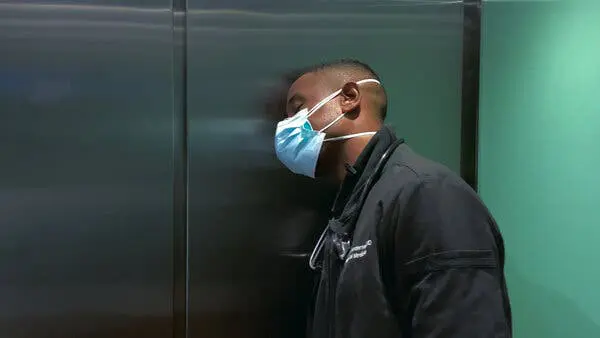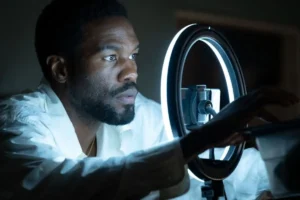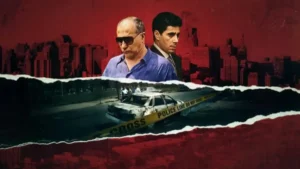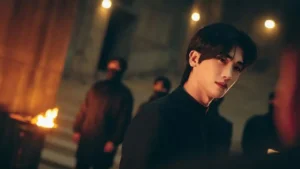Summary
Convergence: Courage in a Crisis is a compelling documentary through the lens of nine stories of ordinary people who fight against diseases and uplift humanity amidst adversity.
Netflix documentary Convergence: Courage in a Crisis was released on the streaming service on October 12, 2021.
It’s been two and half years since COVID-19 struck and changed how the world works. It’s a lonely, depressing, vague year for most of us. As a person who comes from one of the most affected countries, Indonesia, COVID-19 has marked one of the most tragic outbreaks in history. It’s the time where death feels so close yet vague to us. Every day the mosque behind my house announced the day’s deaths like it’s a piece of daily news. The phones and social media suddenly filled with people asking for oxygen tubes, and empty COVID ward isolation due to the hospital overloads, and more death news. Some even from the people that are close to our heart. But the most tragic thing about this COVID is so many souls spend their last moment fighting the disease alone in isolation, the front liners who risk every second of their breath to save people, or the grief that leaves the family who cannot say goodbye to their loved ones until the very end.
Convergence: Courage in a Crisis is a powerful documentary filled with compelling real events and heroic stories that occur around the world. Directed by award-winning British documentarian Orlando von Einsiedel, who is known for “The White Helmets,” Convergence: Courage in a Crisis is another dive into the altruistic side of the pandemic. It’s unfolding powerful testimony of the crisis through the eyes of nine stories of ordinary people who fight against the disease and uplift humanity through adversity. COVID-19 has forced people to unite together to survive. The documentary show us the deep flaws within humanity’s ability to mitigate and deal with crises, especially among a large population. For two hours, it illuminates the real situation that despite the adversity, humanity still shines upon the end of the tunnels.
We embark on a journey through the pandemic. From the beginning of the virus outbreak, the city of Wuhan, to how it finally affects almost the entire country and reaches its highest peak. For the entire documentary, Orlando von Einsiedel works with ten devoted co-directors to film the footage from all over the place. From Lima to London; from Miami to São Paulo. From the COVID ward to the prison. This is why Convergence: Courage in a Crisis’s strongest point lies within its storytelling; as a front liner, victim, scientist, nor survivor. From the story of a young vlogger who decides to be a part of the first medic team in Wuhan to Dr. Rosa Luz López comforting her young patient, Aldair, with a hazmat suit from Lima, Peru. Then we move to the Paraisópolis favela in São Paulo, Brazil, where Renata Alves, an events organizer, volunteers herself to be an ambulance GPS navigator. Also, the Syrian refugee in the United Kingdom, Hassan Akkad, submits over 100 applications during the pandemic to the numerous hospital and companies but eagerly takes the work as a cleaner at the COVID-19 ward in a local hospital, despite his original intention to become a farmer. Or, the cancer survivors who risk it all for the infected to get the treatment they deserve. COVID-19 has pushed ordinary people to finally step out to do the most courageous things during crises.
Convergence: Courage in a Crisis offers excellent editing and cinematography experiences by combining the elements of drama and documentaries at the same time. It emphasizes more on the ideas, underlining how COVID-19 is not just about health issues but it’s about social justice and humanity by illuminating the system’s inequality especially in marginalized communities. This is where the seeming transition from the outbreaks to the illustration of when the murder of George Floyd goes viral around the world dive in, it’s valuable footage and narratives of how civil society works together to fight the outbreaks when the impaired system has failed to reassure and equally protect its people. Some of the stories are worth having their own documentaries because one of the downfalls is we don’t get to the bottom of each story most of the time.
Although it offers heroic narratives, when it moves to a more grand political scheme, it suddenly loses the narrative and lacks in conviction. Or should I say, playing it safe? Some footage involving high-level organizations and key leaders feel preachy, inorganic, and sketchy at some points. Convergence: Courage in a Crisis ends with all the people singing “Lean On Me” in unison but what gets me the most isn’t the singing, but one of the dialogues from the affected family: “I don’t want commendations… I want a better health care system.” Because that’s the real call to action.
What did you think of Netflix documentary Convergence: Courage in a Crisis? Comment below.




